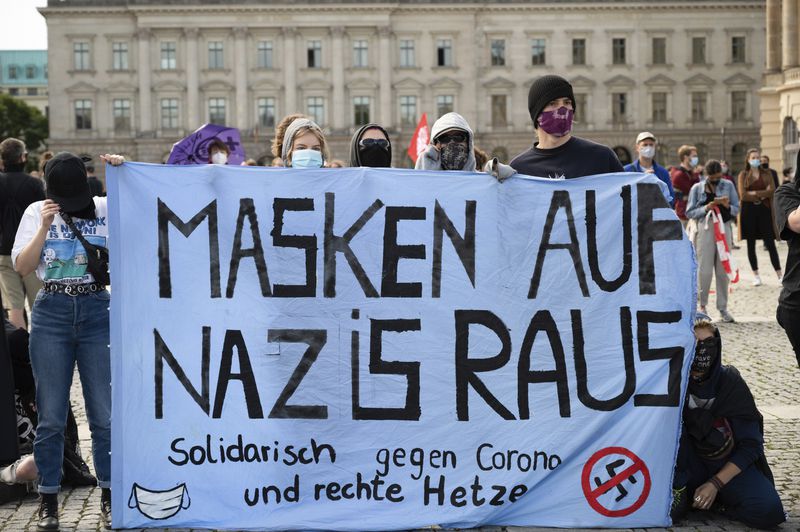The rise of anti-Semitism
It is the first Union of European Football Associations (UEFA) Conference League home game of the 2021-22 season. Turmoil, racism, and anti-Semitism unfold in the stands. Beer smothers a section of the Jewish crowd as Union Berlin fans shout insults. Police rush to stop the burning of an Israeli flag. A Nazi salute is spotted in the crowd.
“Haifa fans claimed they were insulted and threatened by some Union supporters at the Europa League Conference match in Berlin, which took place at the Nazi-era-built Olympic Stadium (…) The recent anti-Semitic allegations come in light of increased hate crimes committed towards the Jewish population,” i24 News said in an article.
At Union Berlin’s UEFA game on Saturday, Sept. 3, Maccabi Haifa fans, the opposing Israeli team, reported multiple anti-Semitic outbursts from some of the German fans. They were subject to slurs, taunts, offensive demonstrations against their country flag, and even racially-motivated gestures. The Union Berlin team apologized for these incidents and is working with the police to resolve the outbreaks and ensure that these situations do not happen again in their stadium.
“This behavior is shameful, and we will not tolerate it. We apologize to those affected. Anti-Semitism is, unfortunately, still present in our society, which is why it also shows itself in the stadium (…) However, we will never tolerate discrimination in our ranks. It is important to remain vigilant and to work tirelessly against it,” Dirk Zingler, Union Berlin club president, said in an article.
Anti-Semitism is directly defined as a “hatred of Jews,” but it is expressed in numerous forms— such as what occurred at the Union Berlin game. Another well-known example was during World War II when Jews were blamed for Germany’s many economic and political struggles. Historians find that these accusations were a way for Hitler to rally Germany together, establishing him as dictator and beginning the Holocaust. While this was just one event in history, various forms of anti-Semitism can be dated back to ancient times and are still on the rise today.
“The number of anti-Semitic incidents documented in Berlin last year increased by 13% over 2019, despite the city’s multiple COVID-19 lockdowns that have kept people at home,” the Jewish Telegraphic Agency (JTA) said in an article.
While these events unfolded over 4,500 miles away, anti-Semitism still appears at Etowah. Jewish students are often subject to slurs, hateful images, and crude jokes. Though it may not be intended, these jokes are harmful.
“Anti-Semitism is more of an issue now than it used to be. Some people are starting to believe that it is okay to make anti-Semitic jokes expecting me, as a Jew, to find it funny, but it is disrespectful,” Zack Lerman, sophomore, said.
While anti-Semitism was first practiced hundreds of years ago, this form of discrimination is still a problem in today’s society. To learn more about Jewish news, click here.

Hello, my name is Hailey, and I am a senior at Etowah. This is my fourth year on the Talon, and I am Editor in Chief. I am in a lot of various clubs at...

